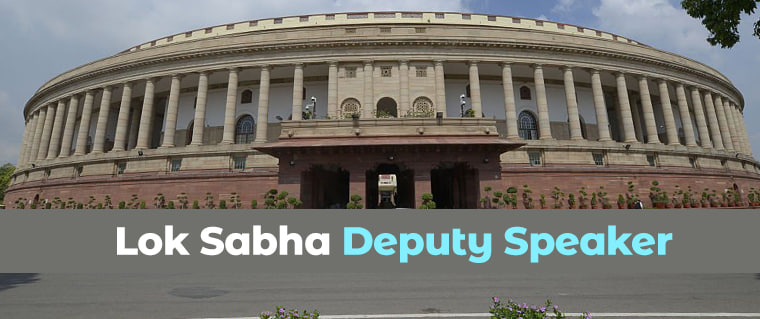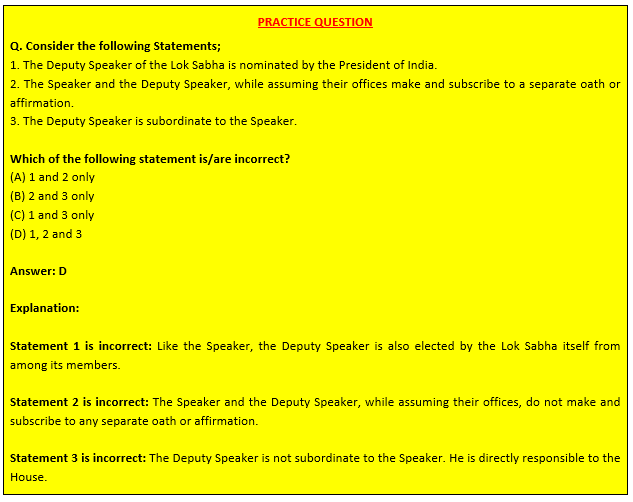Free Courses Sale ends Soon, Get It Now


Free Courses Sale ends Soon, Get It Now



Copyright infringement not intended
In News
Details
Indian Constitution about the Deputy Speaker
How soon the Deputy Speaker must be elected
Can the courts intervene in the election of the Deputy Speaker?
Deputy Speaker of Lok Sabha

© 2024 iasgyan. All right reserved